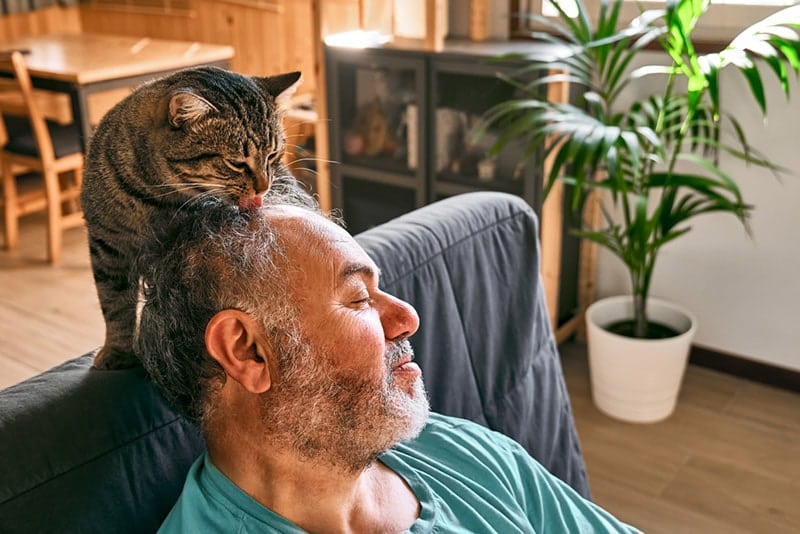You can be sitting on the couch and scrolling on your phone when, all of a sudden, you start to feel an unusual feeling on the top of your head or arm. Your cat is licking you a lot lately, and you can’t seem to figure out why. Cats lick humans for various reasons. Some are innocent and simply because they’re showing you affection, while others could be a cause for concern.
Read on below to find out more.

The 8 Possible Reasons Why Your Cat Is Grooming You
1. Showing Affection
This is by far the most likely reason your cat is licking you. Cats lick and groom each other to show affection, so it’s only natural that they’ll want to show their affection to you in the same way.
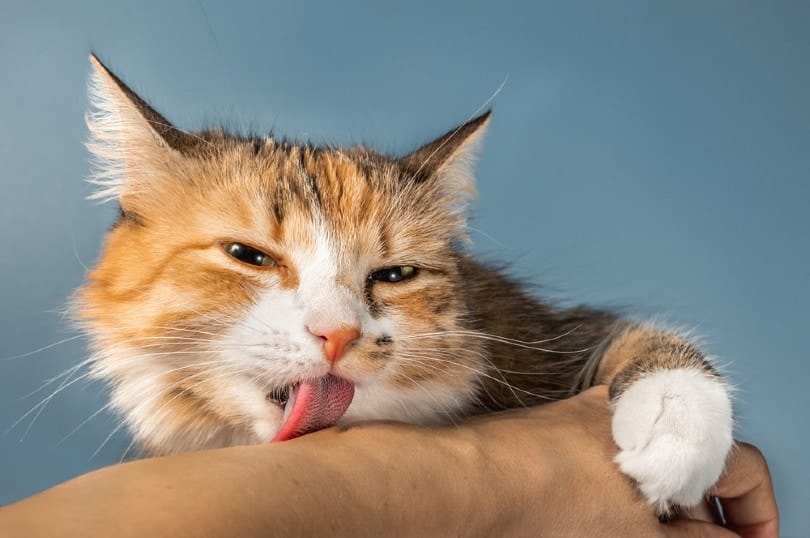
2. Spreading Scent
Cats are territorial creatures, and if they like you as a person, they’ll want to mark you as their own. They can do this by rubbing up against you and your stuff or by licking you directly. They want to show the world that you are theirs, and it’s a big compliment when they claim you.
3. To Clean You Up
Cats will often lick you because they like to groom the people they love, so if they think you’re looking a little untidy, they might start doing this a bit more. While you might not feel like you need to be groomed, your cat clearly thinks you do.
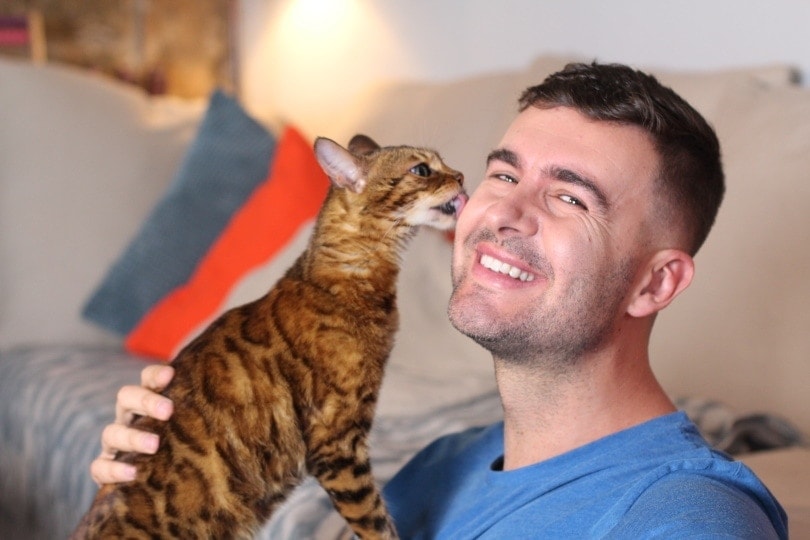
4. They Want Your Attention
Sometimes your cat licks you simply because it’s an easy way to get your attention. This is especially true if you’re constantly reacting when they lick you since they’ve learned that you will repeatedly respond.
5. You Taste Good
Just because you taste good doesn’t mean your cat wants to eat you, but it could be the reason they keep coming back for more. It could be that you have some leftover food on your skin, or your cat might just like the saltiness of it. Either way, you taste good, and they can’t seem to help themselves.
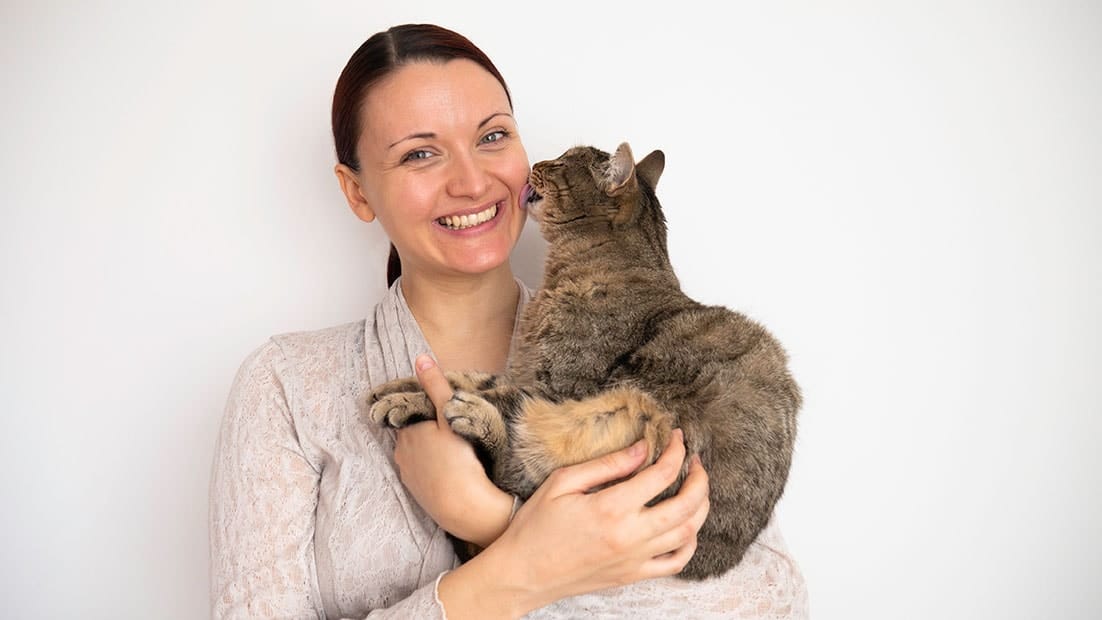
6. They’re Bonding with You
Just like you want to spend some time bonding with your cat, sometimes all your cat wants to do is spend some time bonding with you! And just like the way you want to bond with your cat might not be the way you want, the same can be true the other way. This doesn’t mean you need to let them lick you, but it could be as innocent as wanting to feel close to you.
7. They Want to Play
If your cat wants your attention, it could be because they want to play. If they’re running around, bringing toys, or anything else on top of licking you, this is likely the cause. Cats are fun-loving creatures, and when the mood strikes, they can be extremely creative in how they get their point across.
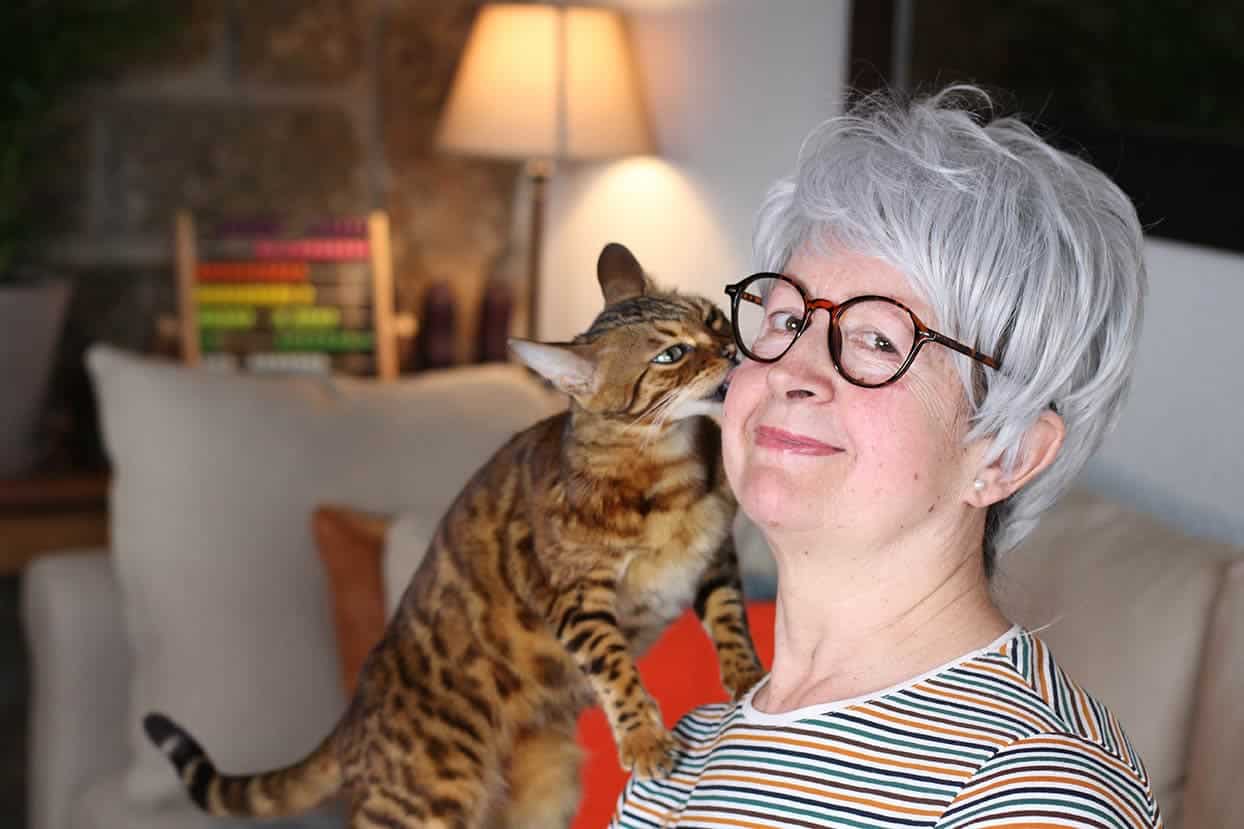
8. Underlying Medical Problem
If your cat never really licked you much before but the behavior has increased, then it could be because of an underlying medical issue. This isn’t the most likely scenario, but if you think your cat is acting differently, you need to take them to the vet to get checked out.

How to Get Your Cat to Stop Licking You
Just because your cat wants to lick you doesn’t mean you need to let them. The good news is that it’s pretty easy to get your cat to stop licking you as long as you consistently do it the right way.
When your cat starts to lick you, simply redirect them to something else. Don’t start playing with them, as this can encourage the behavior in the future. Avoid negative reinforcement too. Simply ignore them or redirect them to something else, and then don’t give them additional attention.
If you do want to play with your cat, give them a few minutes before starting. This way, they don’t associate the licking with getting your attention. If you do this consistently, it should result in a cat that doesn’t lick you as much before too long.
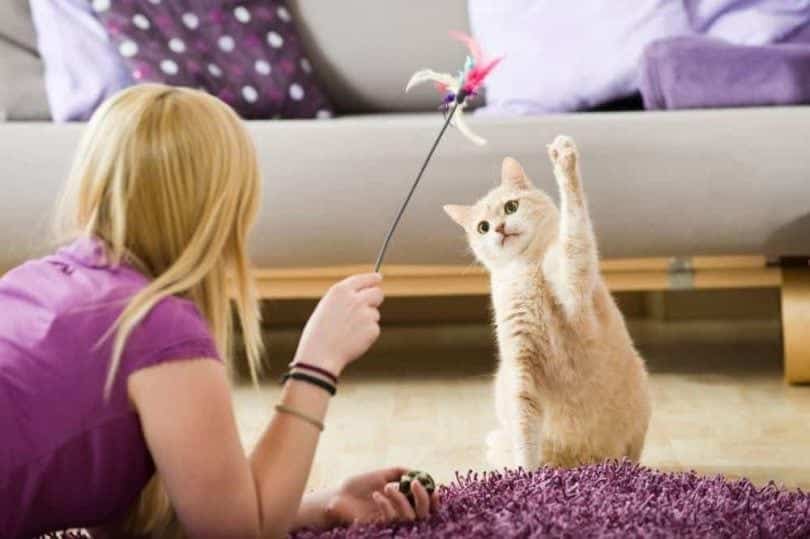

Conclusion
Usually, if your cat is licking you, there’s nothing you need to worry about or do if you don’t mind the licks since this is a natural behavior for them to show. Of course, you can get them to stop, and if the behavior is excessive and constant, it could be an underlying medical problem. If you suspect this is the case, don’t ignore it, and take them to a vet right away.
- See also: Why Do Cats Lick You? 7 Things to Know
Featured Image Credit: Caterina Trimarchi, Shutterstock

